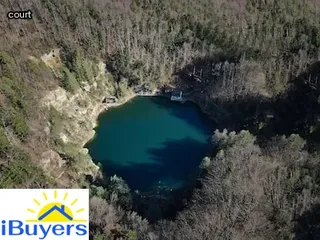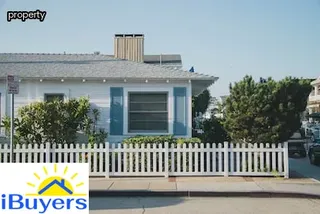When selling a house in Vermont, it is important to be aware of the probate requirements necessary for estate settlement and probate timelines. In Vermont, if the decedent had a will, it must be filed with the court within three years after death.
If there is no will, then an administrator must be appointed by the court to settle the estate. As part of this process, notice of the administration must be provided to all heirs or beneficiaries who may have an interest in the estate.
The executor or administrator may need to file an inventory of assets and liabilities with the court as well as accountings for any distributions from the estate. Depending on the size and complexity of the estate, this process can take several months or even longer to complete.
Before any assets can be distributed, creditors must also be paid in full out of the estate's funds. It is important to follow these steps carefully since failure to do so could result in legal complications down the road or even delays in closing on a sale of property.

If you are selling a house in Vermont, it is important to understand the timelines and processes involved in estate settlement and probate. While these steps may vary from state to state, there are some ways to avoid probate in Vermont.
One way is to create an appropriate trust or deed that transfers ownership of the property upon death. Additionally, if a homeowner passes away without a will, an heir can apply for small estate administration which allows for the transfer of property without going through the lengthy probate process.
It is also possible for multiple heirs to agree on distribution of assets outside of court, saving time and money. When it comes to selling a home in Vermont, understanding these processes and avoiding probate can help make the process smoother and quicker.
When a person passes away in Vermont, their estate is distributed according to the terms of their will. An executor is appointed by the court to carry out the wishes of the deceased and administer their estate, which includes transferring ownership of any real property to its rightful heirs.
In return for their services, an executor may be entitled to compensation under Vermont law. The amount of compensation allowed depends on factors such as the nature of duties performed, the size of the estate, and other related costs.
Executors should take into account that compensation may be subject to certain taxes and fees based on their individual situation. They should also understand that they are responsible for providing proof that all requirements have been met before being eligible for reimbursement from the estate.
There may also be restrictions or limits on how much compensation an executor can receive depending on local probate laws.

The probate process in Vermont can be lengthy, so it's important to understand the general timeline. Probate begins when an estate is opened and a personal representative is appointed by the County Court.
The personal representative must then notify any creditors and heirs of the decedent's death, as well as inventory the estate's assets. Once all debts have been paid off and assets have been distributed according to the will, a petition for distribution must be filed with the court.
This can take anywhere from six months to two years depending on the complexity of the estate. In Vermont, probate will typically close within 12 months after filing a final account but may extend beyond that if there are any legal disputes or complications.
It's important to understand these timelines when selling a house in Vermont, especially if you are dealing with an estate settlement or probate case.
In Vermont, probating an estate is mandatory in many cases when someone passes away. The process of probate must be done to legally transfer title of the deceased person’s estate.
This includes any real estate, such as a house, that they may have owned. Probate also ensures that all debts and taxes are paid prior to distributing any assets to the heirs or beneficiaries of the deceased's estate.
The timeline for this process can vary and it is important to understand each step so you can plan accordingly when selling a house in Vermont during an estate settlement or probate. After death, the executor of the estate is responsible for filing a petition with the court which will provide them with authority to administer and settle the estate.
This might include making arrangements for payment of outstanding debts, filing tax returns and other documents, paying creditors, and finally distributing assets to heirs or beneficiaries according to state law. All of these steps must be completed within certain timeframes set by local laws in order to complete probate successfully and ensure that all legal requirements have been met.

When it comes to selling a house in Vermont, the probate process can be complex and time-consuming. In order to settle an estate, a valid will must be probated by the court, which is required by law.
The purpose of probate is to ensure that all of the deceased's assets and debts are handled according to their wishes as outlined in the will. It is important to understand that even if there is no will, it may be necessary for the estate to go through probate in order for it to be legally distributed or sold.
Probating a will ensures that creditors are paid and taxes are properly accounted for before any remaining assets can be transferred to the heirs or beneficiaries. In Vermont, probate typically takes anywhere from 4-6 months depending on how complicated the estate settlement is.
It's important to work with an experienced attorney who specializes in estate settlement and probate timelines so that everything is done correctly and efficiently.
Settling an estate in Vermont is a complicated legal process that requires attention to many details. It is critical to understand the timeline and obligations of the estate settlement, as well as the probate timelines associated with it.
Estate settlement includes gathering all assets and liabilities, paying creditors, and distributing remaining assets to heirs or beneficiaries according to the terms of the will. Probate is a court-supervised process in which the will is authenticated and approved, and debts are settled.
In order for this process to move smoothly in Vermont, it is important to follow specific timelines established by law. The executor of the estate must file a petition for probate within three months of being appointed.
Within four months of filing the petition, he or she must submit an inventory of all assets and liabilities of the decedent. Additionally, claims for creditor payments must be filed within three months from when notice is given.
Finally, any objections by heirs or beneficiaries must be raised within two weeks from when notice is provided; if no objections are raised within this time frame, final distribution may take place no sooner than six months after probate was granted.

When selling a house in Vermont, it is important to understand the deadlines for filing after death. Estate settlement and probate processes typically require an executor to follow certain timelines in order to distribute assets according to the deceased's wishes.
In Vermont, these deadlines vary depending on the size of the estate and must be completed within nine months of death. Even if an estate does not need to go through probate, the executor must still file an affidavit with the Probate Division of their local court within nine months of death.
If any debts are owed by the deceased, creditors must be notified within three months of death, or they may lose their right to collect payment from the estate. Depending on how long it takes for assets to be distributed, it may be necessary to file an extension with the Probate Division before nine months has passed.
It is important to understand these deadlines when selling a house in Vermont and ensure that all paperwork is filed correctly and on time.
The probate court system in Vermont is an important part of the process of selling a house in the state. It helps individuals navigate the complexities of estate settlement and probate timelines.
The process begins with the filing of a petition with the court to open up an estate. This document may include the will, if there is one, as well as any necessary documents that prove ownership of the property.
Once filed, a hearing will be held to determine who should administer the estate and to distribute assets according to state law. After this decision is made, it’s important for beneficiaries to understand their rights and know how to access information from the court system.
The probate court also oversees payment of debts, taxes, and other liabilities associated with settling an estate. It’s important to familiarize oneself with local rules and regulations when accessing this court system and navigating through these legal processes when selling a house in Vermont.

Exploring the Vermont Statutes Online is a must for anyone considering selling a house in Vermont. While estate settlement and probate timelines may vary from municipality to municipality, the Vermont Statutes Online provides an invaluable resource for understanding the legal requirements specific to each town or county.
By researching any applicable statutes, homeowners can be sure their home sale complies with local regulations. Additionally, it's important to note that certain processes such as inspections, appraisals, and title transfers may take longer in Vermont than in other states due to special laws and procedures that are unique to this area of the country.
This means that having an awareness of the relevant state statutes is essential when navigating the home-selling process in Vermont.
Vermont law requires that a valid will must be created and signed in order to settle an estate. The probate process is the legal procedure which involves the formal validation of a will, the payment of any debts and taxes, and the distribution of remaining assets to beneficiaries.
Probate can take anywhere from six months to two years or more depending on the complexity of the estate. Before probate begins, certain documents must be filed with the court such as an Inventory and Appraisal Report of Estate Assets, an Executor’s Oath, and a Notice to Creditors.
Additional legal filings may also be required if there are disputes over asset distribution or other matters related to the estate. After all necessary documents have been filed and validations have been made, then assets can be distributed according to instructions in the will or state law for intestacy cases.
If a real estate property is included in the estate then it must go through closing before it can be sold. All parties involved in closing must sign off on all paperwork before transfer of ownership can take place.
It is important to understand that these processes may take some time so planning ahead is essential for those looking to settle estates in Vermont.

When it comes to dealing with probate and estate matters in Vermont, there can be a lot of confusion. Estate settlement and probate timelines vary depending on the size of the estate, the type of assets involved, and the applicable laws within Vermont.
It is important to understand these variations in order to ensure that all steps are taken properly when selling a house in Vermont. In general, all estates must go through some form of probate or estate administration process before any assets can be distributed.
This includes filing petitions with the court and submitting documents such as an inventory of assets. Additionally, each executor or administrator must provide notice to creditors, heirs, beneficiaries, and other interested parties before selling any real estate assets.
Following these steps properly can help expedite the process of selling a house in Vermont so that all parties involved are satisfied with their outcome.
If you are looking for resources regarding estate settlement in Vermont, below are some helpful links. For those who need additional information about the process of selling a house and settling an estate in Vermont, The Vermont Bar Association has compiled a comprehensive guide covering all aspects of the transaction including probate timelines and other important legal considerations.
The Vermont Department of Taxes also provides useful information on how to file taxes when settling an estate. The Department of Financial Regulation offers guidance on understanding how insurance works when dealing with real estate transactions.
Finally, the National Association of Realtors provides general advice on navigating the home-selling process as well as more specific resources like state-by-state fact sheets that can help you understand how to best sell your house in Vermont.

When it comes to understanding the language used during estate processes in VT, there are a few key terms that you need to be aware of. Probate is a court-supervised process for settling and distributing an estate according to the law.
An executor or personal representative is responsible for handling the deceased's affairs and administering their estate, including any debts or taxes due. Estate settlement includes taking inventory of assets, transferring titles to property, and paying off any liabilities associated with the deceased's estate.
In addition, it is also important to understand the timeline involved in selling a house in Vermont. Generally speaking, this process can take anywhere from a few months up to two years depending on various factors such as whether or not there is a will.
Additionally, probate timelines may vary depending on whether or not there is an objection filed against the probate of the will by creditors or heirs of the deceased. It is essential to be aware of these timelines when attempting to sell a house in Vermont as they could affect your ability as an executor or personal representative to complete all necessary tasks within a timely manner.
Selling a house in Vermont can be a complicated process, but understanding the facts about this website and estate issues in VT can make it simpler. Knowing the timeline of probate and estate settlement is essential for anyone looking to sell their home in Vermont; after all, the timeline affects how quickly a property can be sold.
Additionally, understanding the legal requirements associated with selling a house in VT is important in order to ensure that everything is done correctly. Researching and considering these facts can help homeowners prepare for any issues that may arise during the process of selling their home.
It’s also important to understand what services are available when it comes to listing a house for sale and who will handle any paperwork associated with this process. Lastly, making sure that all taxes are paid on time and that all records are kept up-to-date is essential when it comes to settling an estate in Vermont.
Knowing these facts can help make the process of selling a house in Vermont much smoother.

Selling a house in Vermont can be an involved process, especially when the home is part of an estate. The timeline for settling an estate after selling a house in VT can vary depending on the complexity of the situation and the estates assets.
It is important to understand both the estate settlement and probate timelines associated with selling a house in Vermont to ensure that everything goes as smoothly as possible. Generally speaking, if someone dies owning real property like a house or land, their will must be probated by the court system before it can be distributed to heirs.
This process generally takes anywhere from 3-6 months but may take longer depending on certain factors such as how quickly all paperwork is filed and reviewed. Once a will has been successfully probated, then estate settlement begins.
This often includes gathering assets and distributing them among heirs according to what was outlined in the will. Estate settlements usually take around 3-6 months as well however this timeframe may also depend on circumstances like how many assets need to be dispersed and if any disputes arise between heirs regarding who gets what portion of assets.
Before selling a house in Vermont that is part of an estate, it is important to understand both the estate settlement and probate timelines so you know exactly how long you should expect the process to take and plan accordingly.
When settling an estate in Vermont, there are a variety of expenses that must be taken into consideration.
These may include the cost of probate court fees, executor fees, professional services such as appraisals and legal advice, documentation processing costs, and realtor commissions.
In some cases, taxes must also be paid in order to transfer the property from one owner to another.
It is important to factor in all these expenses before beginning the process of selling a house in Vermont so that all parties involved have an accurate understanding of what will need to be paid during the settlement of the estate.
When settling an estate in Vermont, it is important to understand the probate and settlement timeline. In the state of Vermont, a deceased person’s estate is governed by the laws of probate.
The executor, appointed by the court, is responsible for identifying and gathering assets, filing paperwork with the court to open probate proceedings, paying debts and taxes of the deceased, and distributing any remaining assets to beneficiaries. The executor must also file an inventory of all assets with the court.
The timeline for settling an estate in Vermont typically begins after death when a petition for probate is filed with the court. In most cases, it takes about three months from when probate begins until final distribution of assets takes place.
However, depending on complexities such as will contests or other disputes that may arise during this process, it could take longer before final distribution occurs. It is therefore important to have a clear understanding of all aspects of estate settlement and probate timelines in order to properly settle an estate in Vermont.

The estate settlement and probate timelines for selling a house in Vermont can vary significantly, depending on the complexity of the estate. Generally speaking, most estates take anywhere from nine to eighteen months to settle.
This includes the time it takes to gather all necessary documents, handle debts and taxes, and distribute assets. It is important to keep in mind that if there are any disputes or disagreements between heirs or beneficiaries, this process may take longer.
In addition, each state has its own unique laws which can affect the time it takes to settle an estate. Working with a real estate attorney can help ensure that the process goes as smoothly as possible and that all deadlines are met.
In Vermont, the law of intestate succession determines how a decedent's estate is divided among their heirs if they die without having written a will. Under this law, the surviving spouse is entitled to the entire estate if there are no living descendants.
If there are living descendants, then the surviving spouse receives one-half of the estate and the other half is divided among all of the decedent's children. In addition, if there are no surviving descendants or spouses, then the estate goes to the decedent's parents or siblings.
It is important to note that in Vermont, adopted children have equal rights as biological children when it comes to inheritance laws. Finally, it should be noted that if any heir contests an inheritance in court, they must do so within two years of receiving notice of probate proceedings.
In Vermont, an executor of an estate is responsible for managing the deceased's assets, paying any debts and distributing the remaining assets to the beneficiaries. As such, they are usually entitled to payment for their services.
The amount that an executor can receive in Vermont depends on the size of the estate, as well as any applicable state laws. Generally speaking, an executor may receive a commission equal to a percentage of the total value of the estate, with a minimum rate set by law.
In some cases, compensation may be determined by agreement between the executor and the beneficiaries or court. It is important to note that many states require court approval for any payment made to an executor above a certain amount.
Therefore, it is essential for those looking to sell their home in Vermont to understand how much an executor can be paid in order to ensure compliance with all applicable laws and regulations when settling an estate.